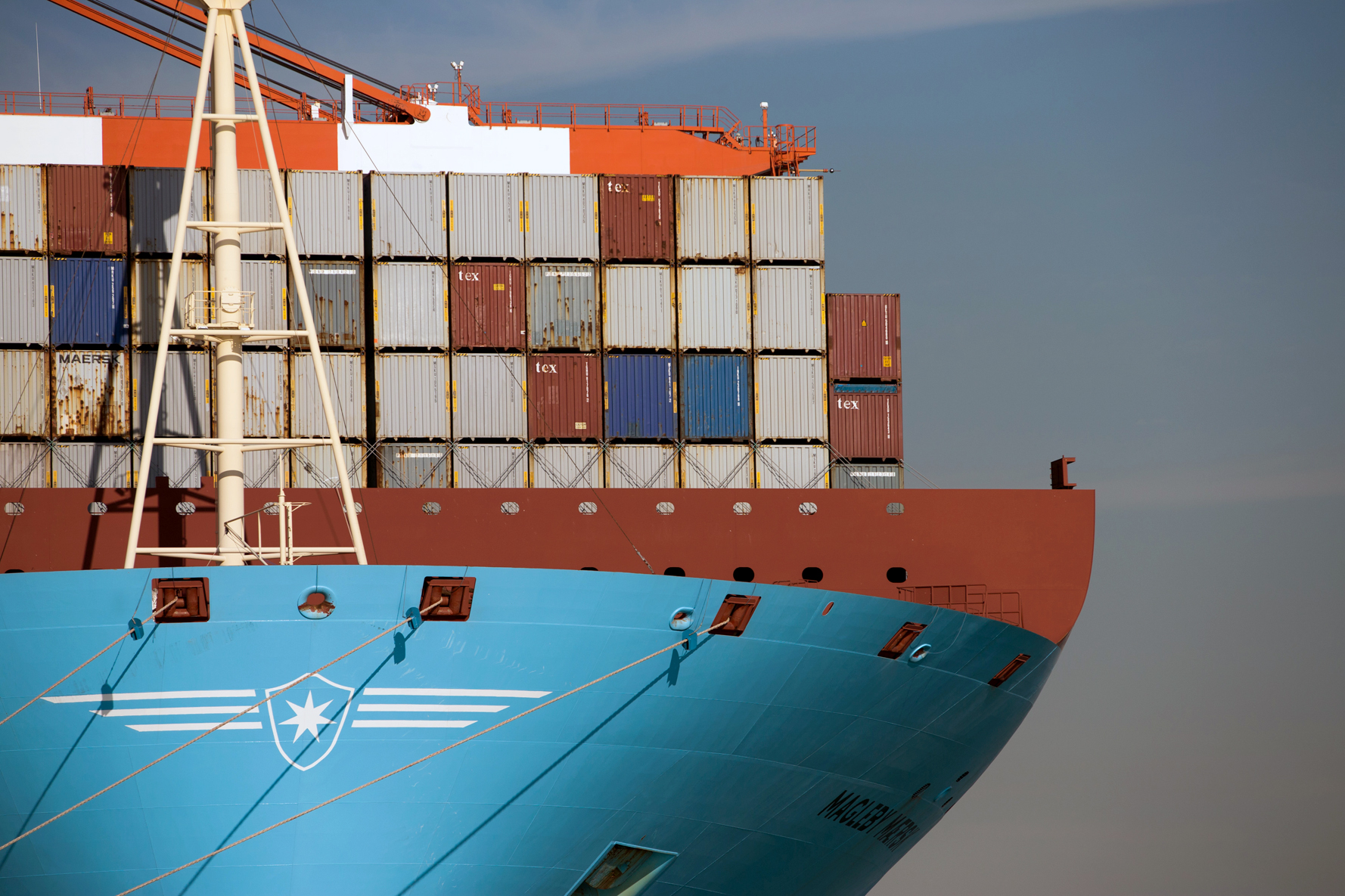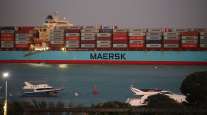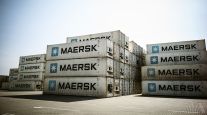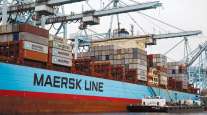Global GDP Worse Than Official Forecasts Show, Maersk Says

The world’s economy is growing at a slower pace than the International Monetary Fund and other large forecasters are predicting.
That’s according to A.P. Moeller-Maersk CEO Nils Smedegaard Andersen. His company, owner of the world’s biggest shipping line, is a bellwether for global trade, handling about 15% of all consumer goods transported by sea.
“We believe that global growth is slowing down,” he said in a phone interview. “Trade is currently significantly weaker than it normally would be under the growth forecasts we see.”
The IMF on Oct. 6 lowered its 2015 global gross domestic product forecast to 3.1% from 3.3% previously, citing a slowdown in emerging markets driven by weak commodity prices. The Washington-based group also cut its 2016 forecast to 3.6% from 3.8%. But even the revised forecasts may be too optimistic, Andersen said.
“We conduct a string of our own macro-economic forecasts and we see less growth — particularly in developing nations, but perhaps also in Europe — than other people expect in 2015,” Andersen said. Also for 2016, “we’re a little bit more pessimistic than most forecasters.”
Maersk’s container line on Nov. 6 reported a 61% slump in third-quarter profit as demand for ships to transport goods across the world hardly grew from a year earlier. The low growth rates are proving particularly painful for an industry that’s already struggling with excess capacity.
Trade from Asia to Europe has so far suffered most as a weaker euro makes it tougher for exporters like China to stay competitive, Andersen said. Still, there are no signs that the global economy is heading for a slump similar to one that followed the financial crisis of 2008, he said.
“We’re seeing some distortions amid this redistribution that’s taking place between commodity exporting countries and commodity importing countries,” Andersen said. “But this shouldn’t lead to an outright crisis. At this point in time, there are no grounds for seeing that happening.”
To bolster its oil business, Maersk said Nov. 9 it will spend up to $845 million on acquisitions in Kenya and Ethiopia to take advantage of lower prices that have hobbled parts of the energy industry.




